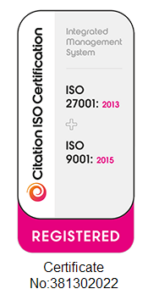Virtual Stress: Why Online Meetings are More Complex Than You Realise
“Asking for help isn’t a sign of weakness, it’s a sign of strength. It shows you have the courage to admit when you don’t know something, and to learn something new.” – Barack Obama
There is sometimes an assumption that virtual meetings can be handled by anyone – that is until you’re asked to run one.
Meeting organisers or event planners are suddenly finding that they not only have to coordinate the speakers and manage the flow of the meeting, but they must also deal with the technology side of Zoom and other platforms.
Typically, the people asked to put on a meeting (be they project managers in a team or event planners) are not regular users of a platform. They don’t know what functions on Zoom to use and when.
All the while, they’re having to coordinate speakers, manage the programme, deal with questions from audience members and handle the many other tasks that their boss expects of them during the session.
If the person asked to run a meeting is an events manager or personal assistant, there’s often a sense that you’re punching above your pay grade when trying to run a virtual meeting. On top of that, there’s a very real fear that if you fail – for example, the Zoom meeting was messy, with people cutting out, no one being able to hear a presenter and visuals going wrong – people will only remember your failure.
This was amplified to us during a call recently with a global company that had been struggling with managing their employee briefing sessions. These were quite simple meetings, but the requirements were taking the meeting organisers well outside of their comfort zone. One of the organisers said during the session we helped them with, “This is stress free, we don’t have to worry about sharing anything, we can just give the Open Audience team the material to manage the meeting.”
Great expectations
Another stress we often hear about is that meeting organisers feel pressured by colleagues to deliver high-quality sessions. They might ask questions during a session and expect an answer, but in reality, that’s not practical or necessarily possible. Something we often hear from organisers is, can we turn off chat for the participants and just keep it on for the presenters? That’s precisely because they struggle with trying to juggle questions and interruptions during the session.
There is also a lack of awareness about what is possible or practical. For example, we’re often asked if, during a webinar, people in the audience can articulate a question. The simple answer is, no, because webinars are not designed to accommodate audience interaction, although with a lot of organisation (and a great deal of risk to the session) it is possible to bring people in by providing them with a presenter link.
These are issues that people unfamiliar with running virtual sessions on a day-to-day basis will inevitably not be aware of, much less be able to handle. My advice is, don’t set yourself up to fail. There are some simple hints and tips for running a virtual session. In my next blog, I’ll share some of these with you.
Leslie Robertson is the Founder of Open Audience, an audience engagement consultancy that specialises in making life sciences meetings more engaging with more positive, successful outcomes – whether in-person or in the virtual space. The Open Audience team helps to strategise and prepare pre- and post-meeting as well as providing real-time support and guidance during the meeting. Open Audience also offers customisable, multilingual engagement platforms that include interactive polling, surveys, and ideas exchange.

